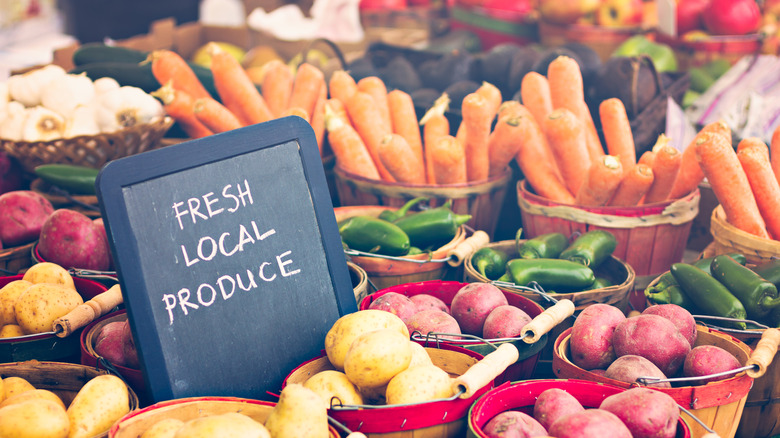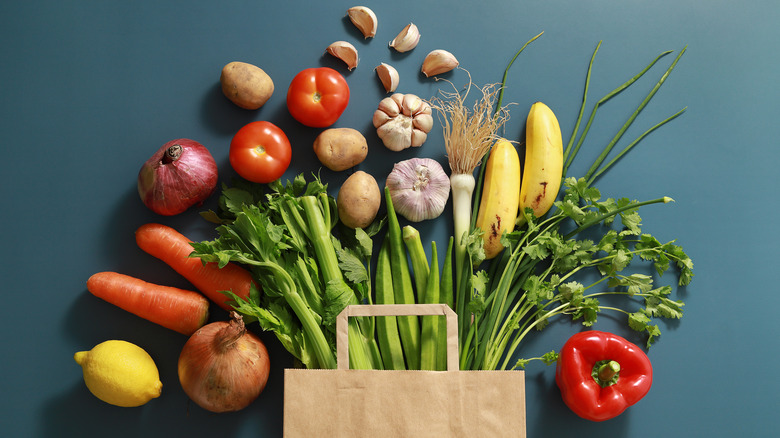The Real Difference Between Starchy And Non-Starchy Vegetables
In the world of vegetables, there are no real losers. While various diets favor certain types of vegetables and shun others (yes to carrots, no to nightshades!), all veggies contain substantial amounts of essential nutrients.Many even contain some protein. There is one distinction among vegetables that has gotten a lot of attention lately, though, especially in light of the flood of low-carb diets that have come out in recent years, and that is carb content.
Vegetables can be divided broadly into two categories —starch and non-starchy. The main difference between the two is the amount of starch — a complex carbohydrate — that each contains. Starch is the most consumed type of carbohydrate in most diets, found in dietary staples like wheat, corn, and rice. But, to a lesser extent, starch is also found in vegetables.
Generally, 'starchy' vegetables contain approximately 15 grams of carbohydrates, and 80 calories per half cup. Non-starchy vegetables contain closer to five grams of carbohydrates and 25 calories for the same serving size.
Starchy veggies have more carbs
For those on strict low-carb diets like keto, knowing where different vegetables fall on the starch-meter is key to planning compliant meals. Higher-starch vegetables include most below-ground growing foods like potatoes, sweet potatoes, and parsnips, as well as beans, peas, and corn.
Lower-starch foods include asparagus, onions, broccoli, beets, eggplant, and many more (via Healthline).
Dieticians are quick to point out that all vegetables, starchy or not, pack a powerful nutritional punch in the form of vitamins, minerals, phytonutrients, antioxidants and fiber, and can all be part of a healthy diet. Nicole Brown, M.S., RDN, a nutrition consultant to the National Center for Weight and Wellness in Washington D.C., says "Eating a variety of plant foods, including low-carb vegetables, on a daily basis is a great way to promote our overall health. Not only does eating a variety of these vegetables increase our intake of different nutrients, but it also keeps eating well interesting and sustainable" (via Weight Watchers).


